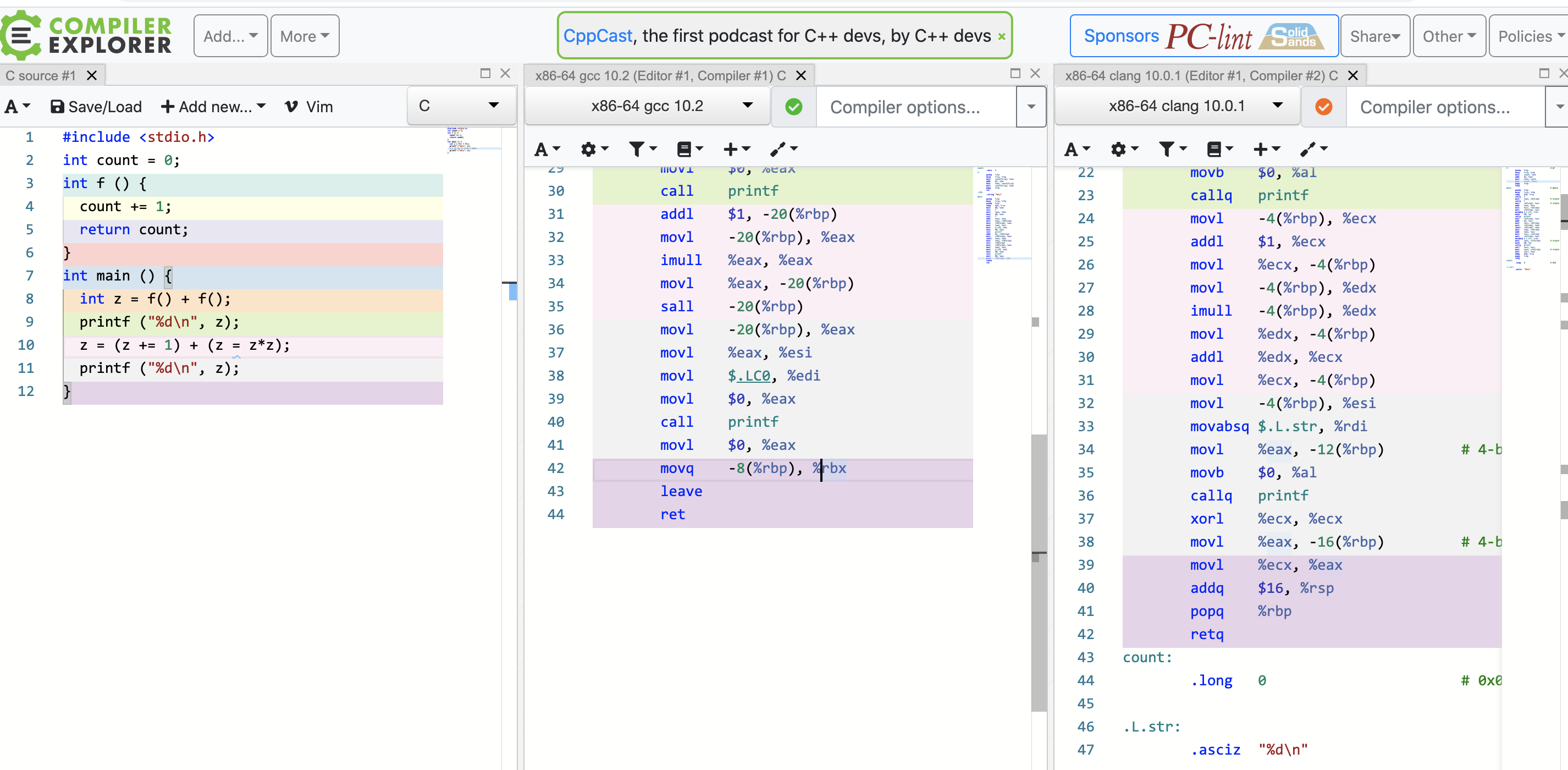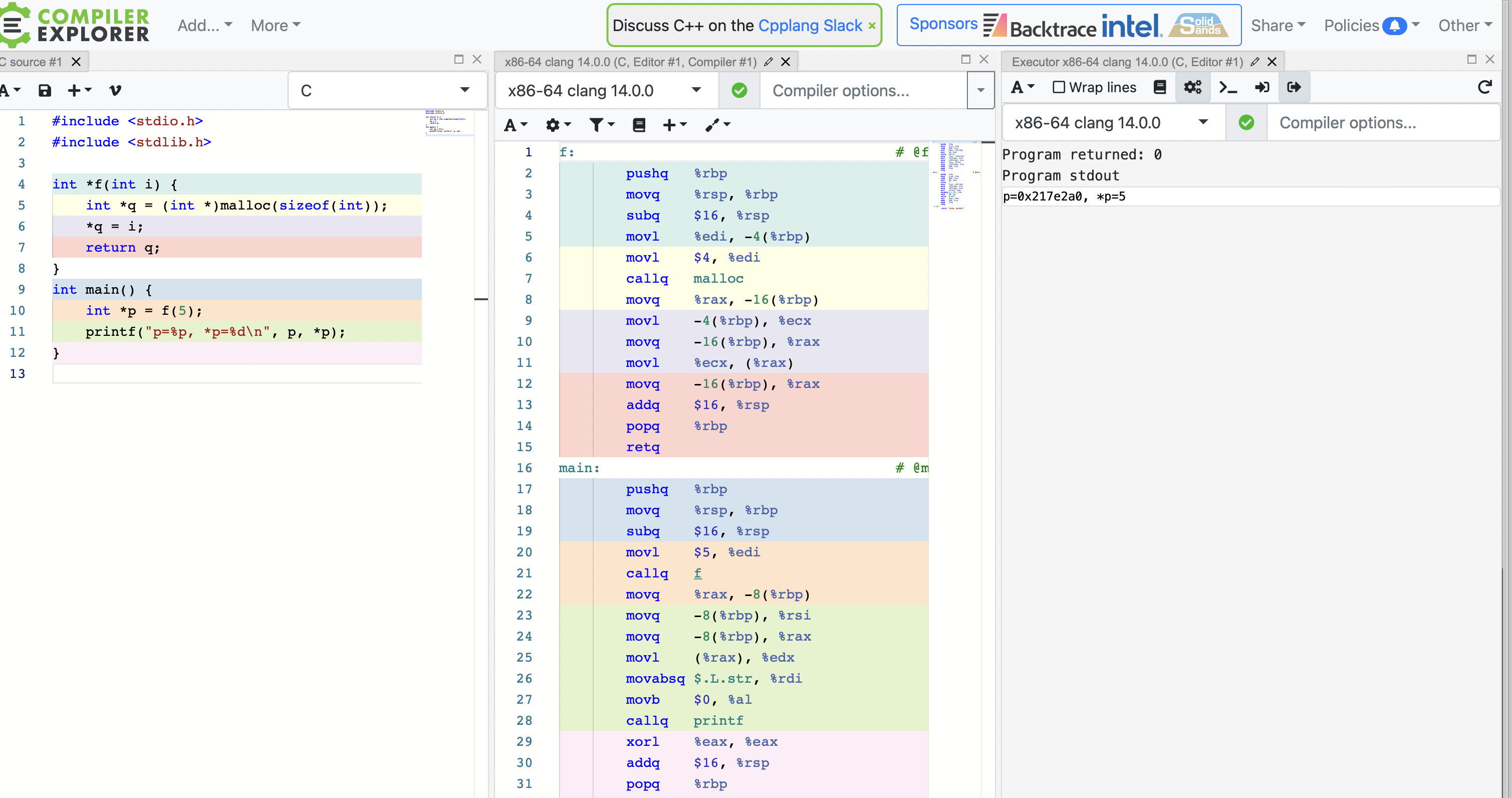CSC447
Concepts of Programming Languages
C: Undefined Behavior
Instructor: James Riely
Undefined behavior: under/overflow
#include <stdio.h>
int isMinValue (int x) {
return (x-1) > x;
}
int main () {
int i = -2000000000;
while (!isMinValue(i))
i--;
printf ("Min value is %d\n", i);
}
$ gcc -O1 undefined.c && ./a.out
Min value is -2147483648
$ gcc -O2 undefined.c && ./a.out
^C #infinite loop
Why?
Undefined Behavior: Order of operations
#include <stdio.h>
int count = 0;
int f () {
count += 1;
return count;
}
int main () {
int z = f() + f();
printf ("%d\n", z);
z = (z += 1) + (z = z*z);
printf ("%d\n", z);
}
$ clang -Wall undefined3.c
undefined3.c:11:21: warning: unsequenced modification and access to 'z'
z = (z += 1) + (z = z*z);
~~ ^
1 warning generated.
$ ./a.out
3
20
Undefined Behavior: Order of operations
#include <stdio.h>
int count = 0;
int f () {
count += 1;
return count;
}
int main () {
int z = f() + f();
printf ("%d\n", z);
z = (z += 1) + (z = z*z);
printf ("%d\n", z);
}
$ gcc -Wall -O3 undefined3.c
undefined3.c: In function ‘main’:
undefined3.c:11:5: warning: operation on ‘z’ may be undefined
z = (z += 1) + (z = z*z);
^
$ ./a.out
3
32

3 32 3 20
z = z + 1; z = z + 1;
z = z * z; z = z + (z * z);
z = z + z; Returning a value
int foo (int n) {
int result = 2 * n;
return result;
}
int main () {
int x = foo (5);
int y = foo (7);
printf ("%d\n", x);
printf ("%d\n", y);
}
Returning a stack-allocated address
int* foo (int n) {
int result = 2 * n;
return &result;
}
int main () {
int* p = foo (5);
int* q = foo (7);
printf ("%p %d\n", p, *p);
printf ("%p %d\n", q, *q);
}
Returning a heap-allocated address
int* foo (int n) {
int* p = (int*)malloc(sizeof(int));
*p = 2 * n;
return p;
}
int main () {
int* p = foo (5);
int* q = foo (7);
printf ("%x %d\n", p, *p);
printf ("%x %d\n", q, *q);
}
Returning a heap-allocated address
int* foo (int n) {
int* p = (int*)malloc(sizeof(int));
*p = 2 * n;
return p;
}
int main () {
int* p = foo (5); free(p);
int* q = foo (7);
printf ("%x %d\n", p, *p);
printf ("%x %d\n", q, *q);
}
Undefined behavior and compiler optimizations
For undefined executions, the compiler can do what it likes.
This can lead to some surprising compiler optimizations.
Undefined behavior: dangling pointers
See the optional exercises on the worksheet from week 1.

Safe languages
Safe languages do not have undefined behaviors
Lisp is probably the first safe language
Java is the first widely used safe language